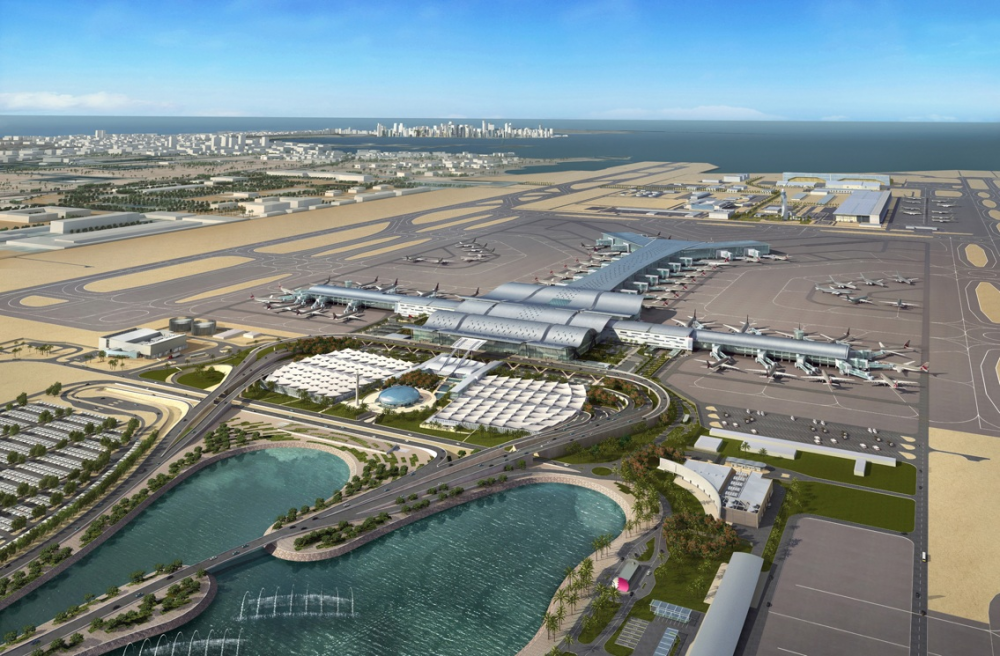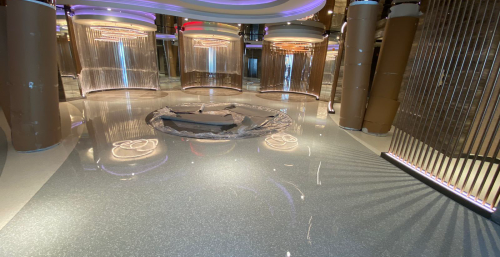New Doha International Airport - NDIA

Task at Hand
The New Doha International Airport (NDIA) project at completion made it the second largest airport in its region, with it featuring two of the longest commercial runways in the world. Another objective of this project was to design and construct a network of roadways that connect the “Airside” and “Landside” facilities while also including access to the Terminal, Commercial and Midfield areas.
The Driveways and Taxiways of the airport were constructed with Plain Cement Concrete (PCC) pavement slabs rested on a prepared subbase of granular material or granular subgrade. The PCC used was composed of aggregate, Ordinary Portland cement (OPC) and water. Chemical admixtures were used for enhancing and modifying the properties of the PCC.
Admixture demands included Superplasticizers and Air-entraining agents in order to alter the PCC pavement slabs’ properties such as workability, setting time, strength and/or durability.
DCP SOLUTION
The massive scope of this project required all PCC mixes to be highly specified with an emphasis on durability and mechanical strength. DCP supplied Water-reducing superplasticizers and Air-entraining admixtures to meet these demands.
These admixtures when used in unison allowed for the properties of the PCC to have an enhanced rheology, a minimal risk of failure and greater mechanical strength that would allow for the Driveways and Taxiways to bear the loads imposed by aircraft throughout the service life.
In order to meet the strict requirements of this project, PCC with a low water-cement ratio was the optimal solution. DCP was able to achieve the needed properties by using Flocrete SP33 and Flocrete R50 water-reducing superplasticizing admixtures. This accelerated early strength development and allowed for adequate flexural strength with regards to loaded aircraft.
Flocrete R50 was offered to offset the adverse effects of hot weather on setting time. This admixture has the properties of a retarder, in addition to being a water-reducing superplasticizer. Using this in a PCC mix will decrease the rate of slump loss and extend workability. This effect can be used in situations such as high cement content mixes, hot weather concreting or when an extended set is needed.
To ensure the quality of the concrete over longer periods of time, DCP’s Cemarin 260 air-entraining admixture was used to improve durability and workability. This admixture also provides the client with concrete that has a greater resistance to freeze-thaw cycles and de-icer agents as well as a reduction in sulphate and alkali reactivity. DCP’s R&D center ran several trials to determine the optimum dose of Flocrete SP33, Flocrete R50 and Cemairin 260 in order to minimize cost and confirm performance requirements.
For more information on the case study, download the attached file. You can find it right under "Project Info". Follow us on social media for more interesting case studies!






